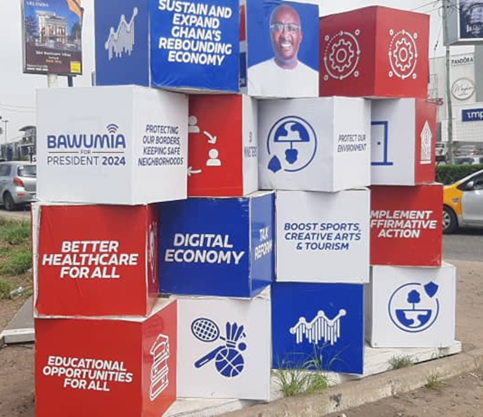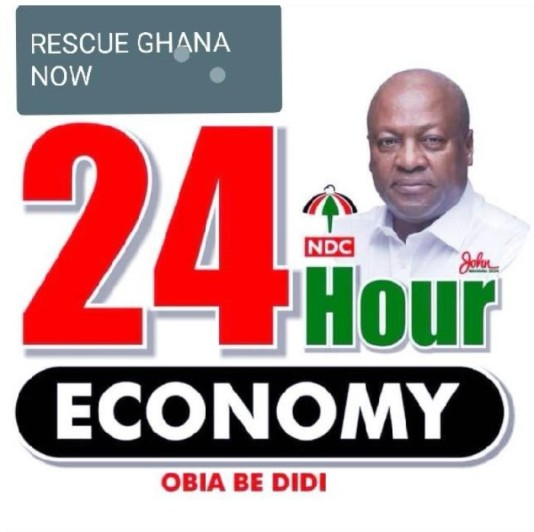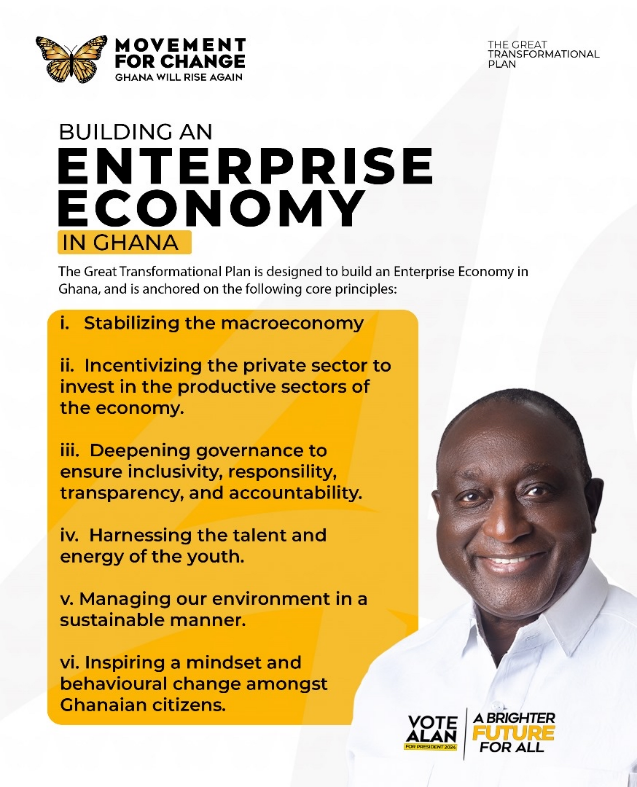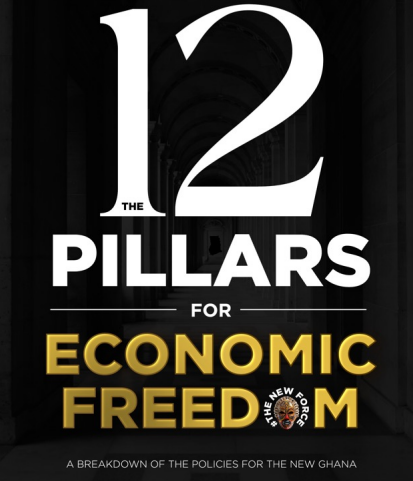The economy dominates presidential campaign in Ghana
Nana Ada, Accra, Ghana
November 22, 2024
On December 7th, 2024, thirteen candidates will vie for the top job. The Ghana’s Electoral Commission approved the candidature of nine candidates, who will represent political parties while four will stand as independent. Economic turbulence has gripped Ghana since the outbreak of the COVID-19. Ghana declared the first case on March 12th, 2020. The economy deteriorated in the following two years, culminating with a default on international and domestic debt on December 19m 2022. The Cedi depreciated against major trading currency reaching historical lows. Inflation skyrocketed, also reaching 54.1 percent in December 2022 (from 9.52 percent in June 2010). Other macroeconomic parameters follow this negative trend. Fiscal deficits widened as revenue fell. International trade suffered as global logistics came to a halt. Eventually, economic growth stagnated, plunging Ghana into an economic recession.
Ghanaian authorities responded with a wrath of measures. The country agreed on a package of reform with the International Monetary Fund (IMF). Ghana signed an Extended Credit Facility (ECF) with the International Monetary Fund (IMF) on May 17th, 2023. The IMF Executive Board approved a three-year, US$3 billion ECF arrangement to ease Ghana’s economic recovery after COVID-19. Since the signing, the country has negotiated debt restructuring deals with domestic and international bond holders. The country has recorded improvements in macroeconomic parameters. Inflation has halved from its level in December 2022, even though it remains the second highest inflation in West Africa after Nigeria. Economic growth has resumed while trade and fiscal deficits have narrowed. Also, and despite continued volatility, the Cedi depreciation remains in the resistance zone.
This economic landscape has shaped and influenced the 2024 presidential race and forced candidates to outline their plan to restore economic stability for Ghana.
Bawoumia: ‟17-points plan” for the economy
Outgoing Vice President of the New Patriotic Party (NPP) which has ruled the country since 2016, is bidding to continue the work of his predecessor. Former central banker, Mahamudu Bawumia, has published a 17-point economic recovery plan. Bawumia plans to cut spending by 3 percent of the gross domestic product (GDP) and channel these resources into the private sector.
He plans to introduce a flat rate tax system, which he says, will ‟simplify the tax administration by giving taxpayers visibility into their tax obligations” . Through this reform, he also wants to widen the tax base and increase state revenues. The NPP is counting on the digital economy to boost job creation. Other key economic sectors on which the NPP’s program targets to boost economic growth are tourism, energy, infrastructure, transport, and agriculture.
The NPP manifesto does not mention the three-year extended facility program (ECF) signed with the International Monetary Fund (IMF). But the manifesto highlights two prominent items of the ECF: tax reform, improved governance. Dr Bawoumia’s manifesto hints at maintaining crucial economic policies from his predecessor’s administration.

John Mahama: ‟24 Hour Economy”
John Dramani Mahama, who served as President of Ghana from 24th July 2012 to 7th January 2017. Before the top job, he served as Vice President of Ghana from January 2009 to July 2012. He is the candidate of the National Democratic Congress (NDC). He unveiled an ambitious economic program labeled ‟24 Hour Economy” in the NDC’s election manifesto. John Mahama is seeking a sweeping economic reform in public finance. He has announced that he will scale up the revenue, conduct prudent management and expenditure. The former president argues that the Bank of Ghana needs reform also so that the country’s monetary policy serves as an effective tool against inflation and currency volatility.
The NDC says that ‟24 Hour Economy ” is a ‟deliberate policy intervention to stimulate economic growth by creating an enabling environment for businesses and public institutions to operate 24 hours per day and seven days per week, in three shifts of eight (8) hours each” . His manifesto promises reforms to root out institutional efficiency and also to provide a stimulus to key economic sectors. The policy targets 12 economic sectors and industries. The candidate says that he wants to ‟re-engage the IMF and complete the current program” .
Over the past few months, he has hammered the same message on his campaign trail. He said ‟I will reset the economy and Ghana will be opened for business for 24 yours a day” He hinted that, he plans to work with the IMF, to achieve ‟macro-economic stability and also restoring fiscal and debt sustainability for long-term economic growth and prosperity” .

Alan John Kwadwo Kyerematen: “Enterprise Economy”
Kyerematen is a former minister for trade and industry from 2017 to 2023 in the current outgoing administration. In September 2023, Alan John kwadwo Kyerematen resigned from the New Patriotic Party (NPP) after losing the party’s leadership race. He then formed his own political party, named Movement for Change (M4C). He describes M4C as an independent political movement that will contest the 2024 general elections with him as Presidential Candidate.

Kyerematen promises 3 million jobs for the youth through a unique initiative called operation ‟Own Your Business”. He says that ‟enterprise economy” has three anchors: entrepreneurship, the promotion of innovation and the drastic reduction of government intervention. This is part of the ‟Great Transformation Plan” for Ghana. His key short-term objectives are the restoration of macroeconomic stability, expenditure management, and revenue optimization and measure to lower inflation and stabilize the exchange. Private companies, he says, need a low and competitive interest rates to lower financing cost for private enterprises in an environment where the state commits to sustainable debt management.
Kyerematen has announced that he intends to tackle clusters of inefficacies and inefficiencies in health, education, infrastructure and in governance.
Nana Kwame Bediakos
One political analysts described Mr. Kwame Bediakos as a ‟ disruptive figure in the Ghanaian seemingly immutable political landscape” . He comes straight from the business world with little political experience. He has raged against what he described as rampant weak governance. Ghana, he said, is a country of ‟unmatched resources, but far too long we have wallowed in poverty while other dictate our worth and grab our wealth” .
He wants to downsize the government to 12 ministries (from 37 in the incumbent government) and give more power to the region through decentralization. A streamlined government, according to his manifesto, will help transform the 16 regions of Ghana into individual industrial hubs. Besides the transformation of regional natural resources, he sees transport infrastructure as a pillar of development policy. Under his plans, new transport infrastructures will include eight water canals. One canal will connect the coastal ports to mining regions in the South West of Ghana and to Cote d’Ivoire. Another will run from the South East through the Volta lake to Burkina Faso and Togo.

Other economic sectors he sees as the engine for growth are agriculture, energy, tourism, and the extractives (oil, gas, mining). Finally, environmental issues and climate change challenges and also opportunities feature in his political manifesto. He argues that advanced technology holds solutions to tackling ravaging and rampant environmental degradation.
Related Articles
